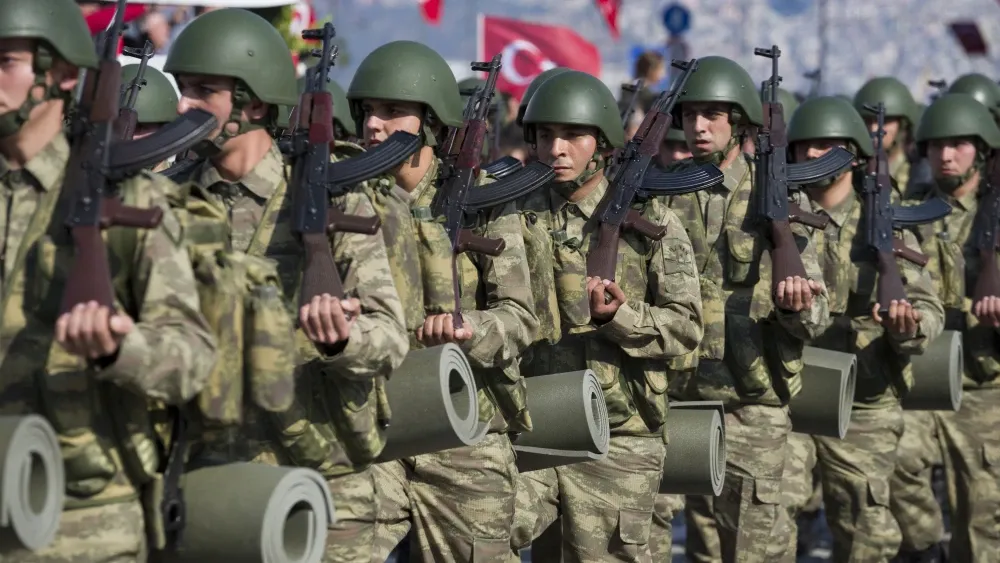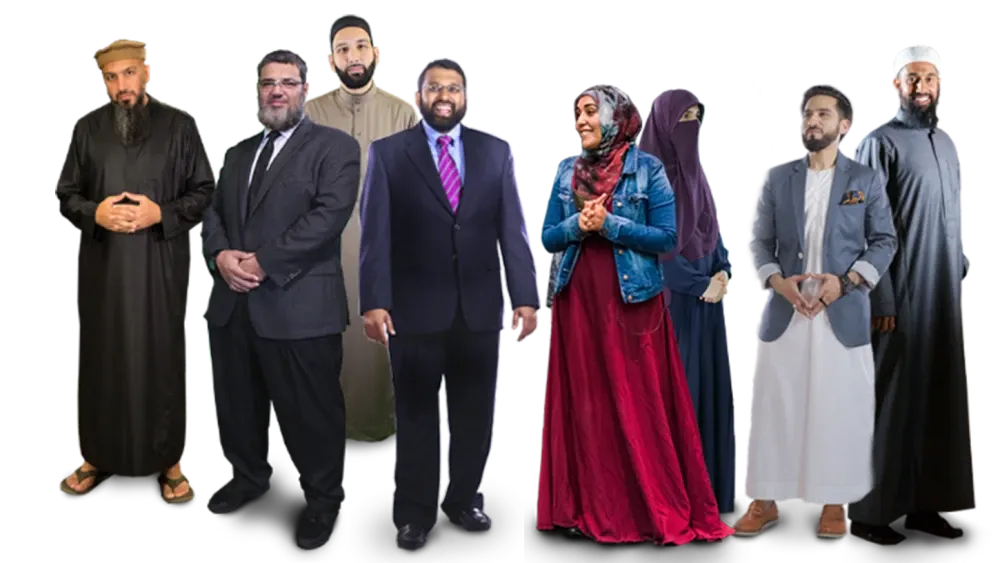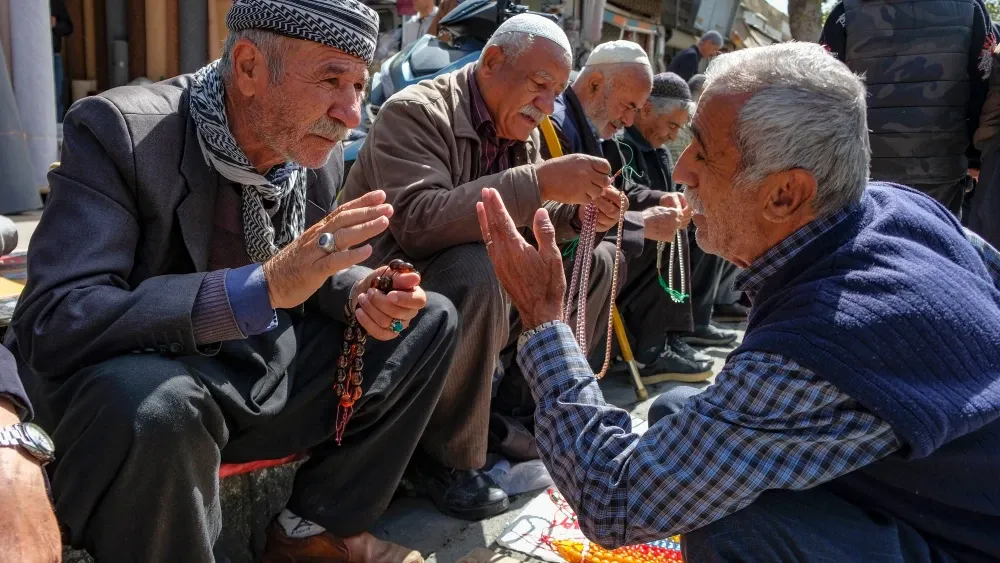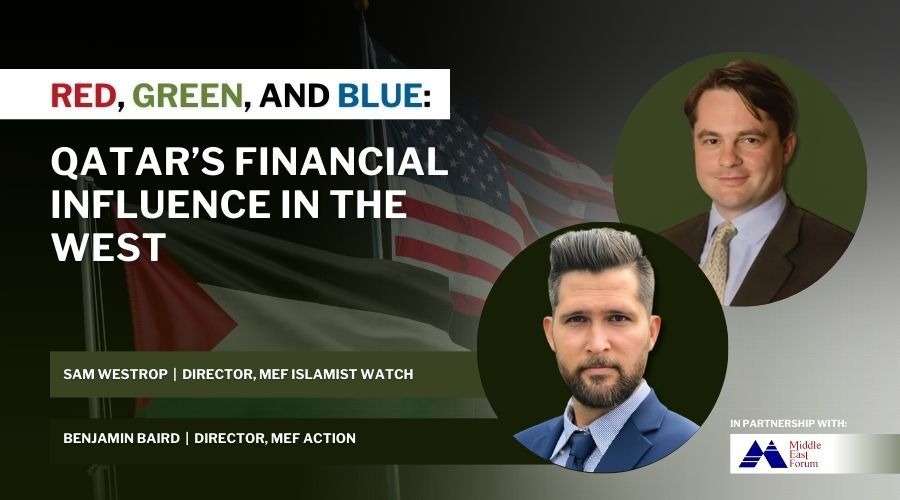| ||
 | ||
| Turkey's Military Mirage, Qatar’s Propaganda Reach, and the AlMaghrib Scandal By Ahnaf Kalam ● Nov 06, 2024 Smart Brevity® count: 4 mins...1117 words Today’s MEF Dispatch Examines Islamists in the U.S. and abroad, including an Alabama imam and instructor at the Texas-based AlMaghrib Institute charged with child pornography whose employer whitewashed his crime. We also examine how tiny Qatar punches above its weight in spreading Wahhabi propaganda in American public schools, universities, and media and offer remedies to these serious security problems. Abroad, we provide an onsite report from a gathering of Islamists in London that fosters alienation between British Muslims and the rest of society. Turning to the Middle East, we argue that diplomats and others could strike a blow against cultural imperialism by using Kurdish terms that distinguish, rather than extinguish, Kurdish language and culture. Finally, we ask if Turkey’s military might has been exaggerated by Western officials who perennially defer to paper tigers in ways that empower them at our expense. | ||
Is Turkey’s Military the World’s Latest Paper Tiger?Recent analyses question the true strength of Turkey’s military amidst political reshaping and strategic missteps. Why it matters: Turkey, once seen as a key NATO ally, now faces scrutiny over its strategic reliability, its attacks on Kurdish targets, and its troublesome lack of action against ISIS. This poses significant risks for NATO’s operations and regional security planning.
The big picture: The Turkish military’s decline mirrors the challenges faced by other perceived paper tigers, such as North Korea and Russia, where political priorities overshadow military competence.
The bottom line: As Turkey's military prowess and its Islamist government come under question, international policymakers must reconsider the extent of support and reliance on Turkey, exploring partnerships with more dependable regional allies. | ||
Top American Imam Charged with Child Pornography; Fired from Islamist Seminary in TexasThe arrest of a top American imam for child pornography charges lengthens the shadow over the AlMaghrib Institute’s reputation. Why it matters: The scandal not only further tarnishes AlMaghrib Institute’s already-corrupt Islamist-aligned reputation, but also reflects broader issues of accountability within religious institutions. This incident highlights the urgent need for transparency and strict safeguarding policies to protect vulnerable individuals.
Damage control fails: AlMaghrib’s attempt to manage the crisis with public statements backfired, drawing criticism from both the Muslim community and external observers.
A history of Islamist extremism: AlMaghrib has faced ongoing controversies linked to its Salafist teachings and affiliations. The institute, which claims to be the largest center in the Western world for classical Islamic studies, has ties to figures involved in extremism, including:
| ||
Eyewitness Report: Inside the U.K.’s Grand Islamist Festival of ContemptThe Global Peace and Unity (GPU) Festival in London, supposedly intended to promote peace, instead fostered division and alienation. Why it matters: Events like the GPU Festival will only deepen divides within Muslim communities, foment hate against Jews and Israelis, and will denigrate social cohesion in the U.K.
Anti-Western sentiment: The festival featured speeches that promoted anti-Western policies while promoting a narrative of Muslim victimhood.
The bottom line: The event’s strikingly sparse turnout indicates that the brand of Islamist extremism espoused by organizer Mohammed Ali Harrath is becoming decreasingly popular among British Muslims. | ||
Why Policymakers Should Use Kurdish TermsPolicymakers are urged to adopt Kurdish terms to recognize officially the existence of the beleaguered minority long persecuted by authoritarian governments and ignored by Western officials. Why it matters: Using Kurdish terms acknowledges the cultural and political significance of the Kurdish identity in the Middle East. Putting preference on terminology used by those who subjugate and oppress the Kurds is often seen as an inadvertent erasure of diverse Kurdish identities.
A historical context: Kurdish regions span multiple countries, yet share a cohesive cultural identity. Historically, powers have attempted to erase this identity through linguistic manipulation.
The bottom line: As regional powers continue to attempt cultural erasure, the Western adoption of Kurdish terms can play a pivotal role in acknowledging the Kurds’ enduring presence and influence in Middle Eastern politics. | ||
WATCH: Sam Westrop and Benjamin Baird on Qatar’s Financial Influence in the WestA joint podcast presented by MEF and the American Jewish University examines how Qatar’s financial influence extends into Western institutions and its implications for security. Why it matters: Qatar’s financial reach into Western universities, media, and political landscapes poses a challenge to transparency and ethical governance. Understanding this influence is crucial for policymakers aiming to safeguard democratic values from the anti-Western and Islamist ideologies promoted by Doha.
Financial tactics: Qatar channels wealth into non-Muslim institutions, subtly promoting an environment conducive to its interests. This includes funding initiatives in prestigious universities and media outlets.
The bottom line: As Qatar continues to navigate its dual role between supporting Islamist movements and maintaining ties with Western democracies, policymakers must address the risks associated with unchecked foreign influence. Implementing stricter regulations could be key to curbing this influence. | ||
| Whether in North America, Europe, or the Middle East itself, threats emanating from the latter demand constant analysis lest they undermine the cultural, legal, and political traditions that make our way of life possible. Vigilance against Islamism, military aggression, and cultural upheaval rests upon informed diagnoses of the key threats that, left unchecked, can usher in chaos. As the Middle East Forum works to protect and promote American interests, the MEF Dispatch will keep you informed about our latest research and writing. Stay tuned. Sincerely, | ||
| Feedback Please share your thoughts on this edition. Was this edition useful? Your responses are anonymous | ||
| Powered by | ||
| ||








